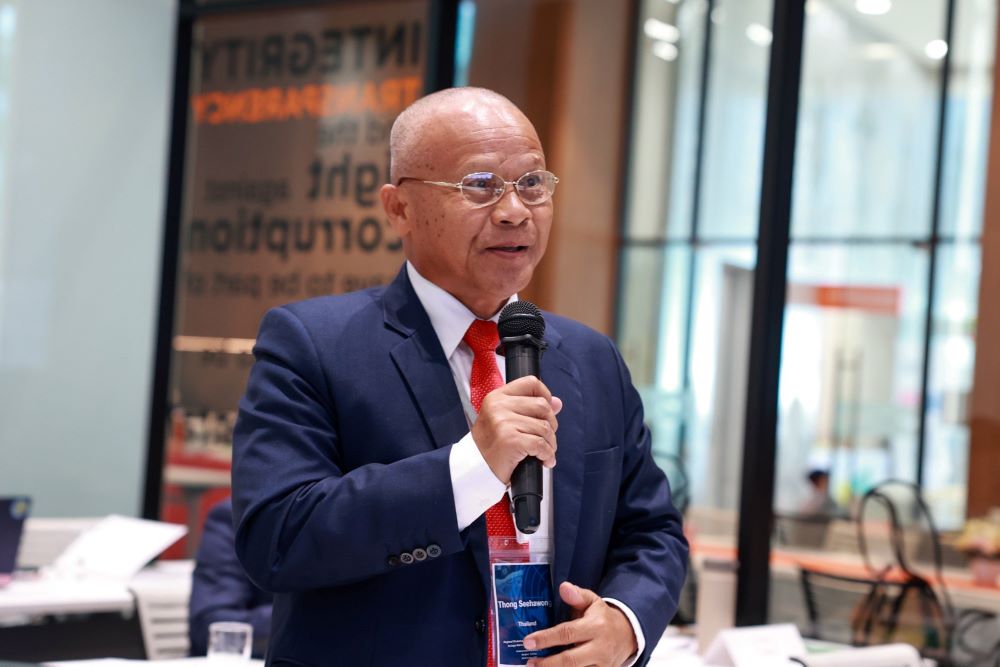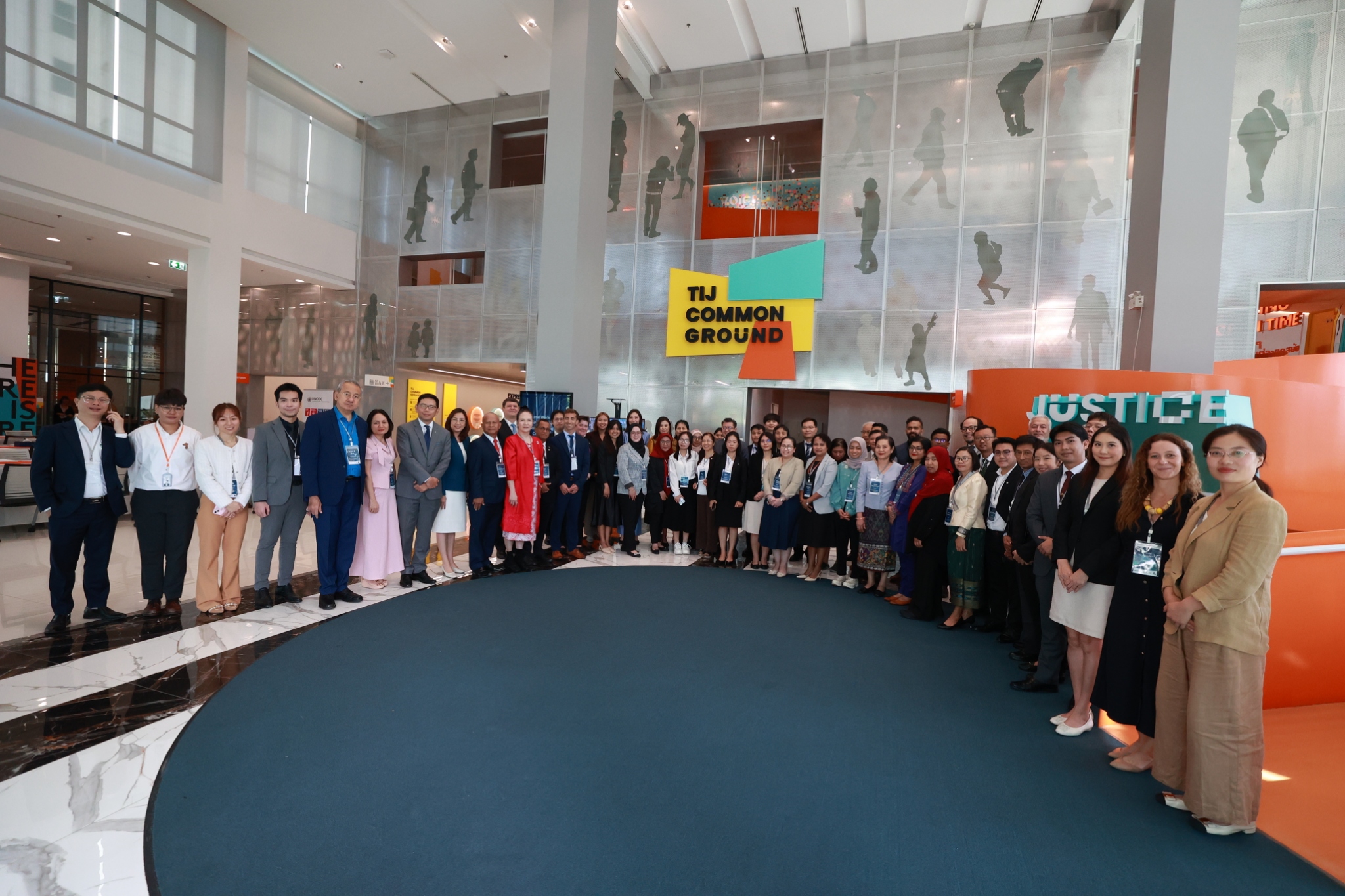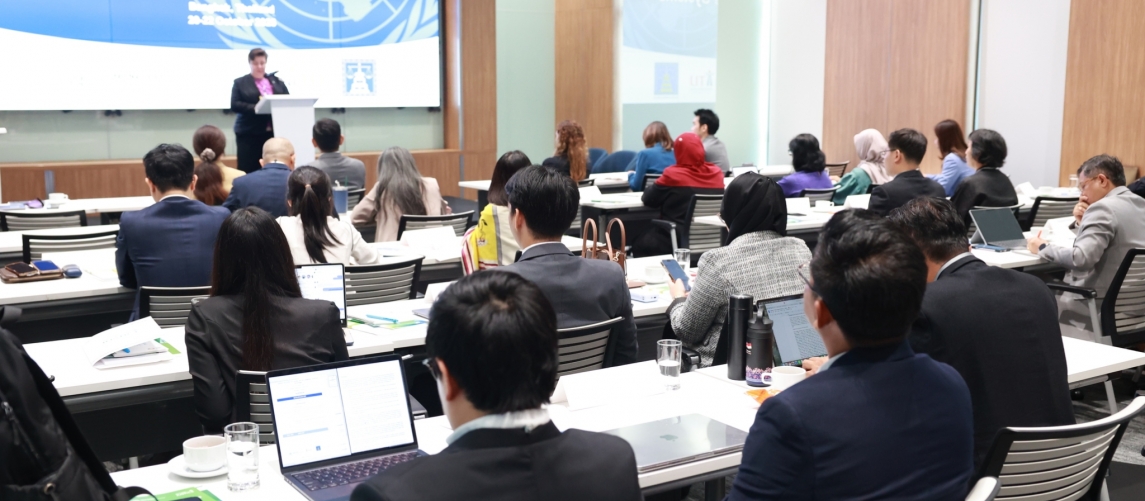“Legal aid is not a privilege, but a right, and governments must ensure it is available, accessible, and sustainable.” remarked Dr. Phiset Sa-ardyen, Executive Director of the Thailand Institute of Justice (TIJ) at the opening session of the Regional Workshop on Enhancing Equal Access to Legal Aid in Criminal Justice Systems, co-organized by the TIJ, the United Nations on Drugs and Crime Prevention (UNODC) and Rights and Liberties Protection Department, Ministry of Justice, Thailand. The conference held during 20-22 October 2025.
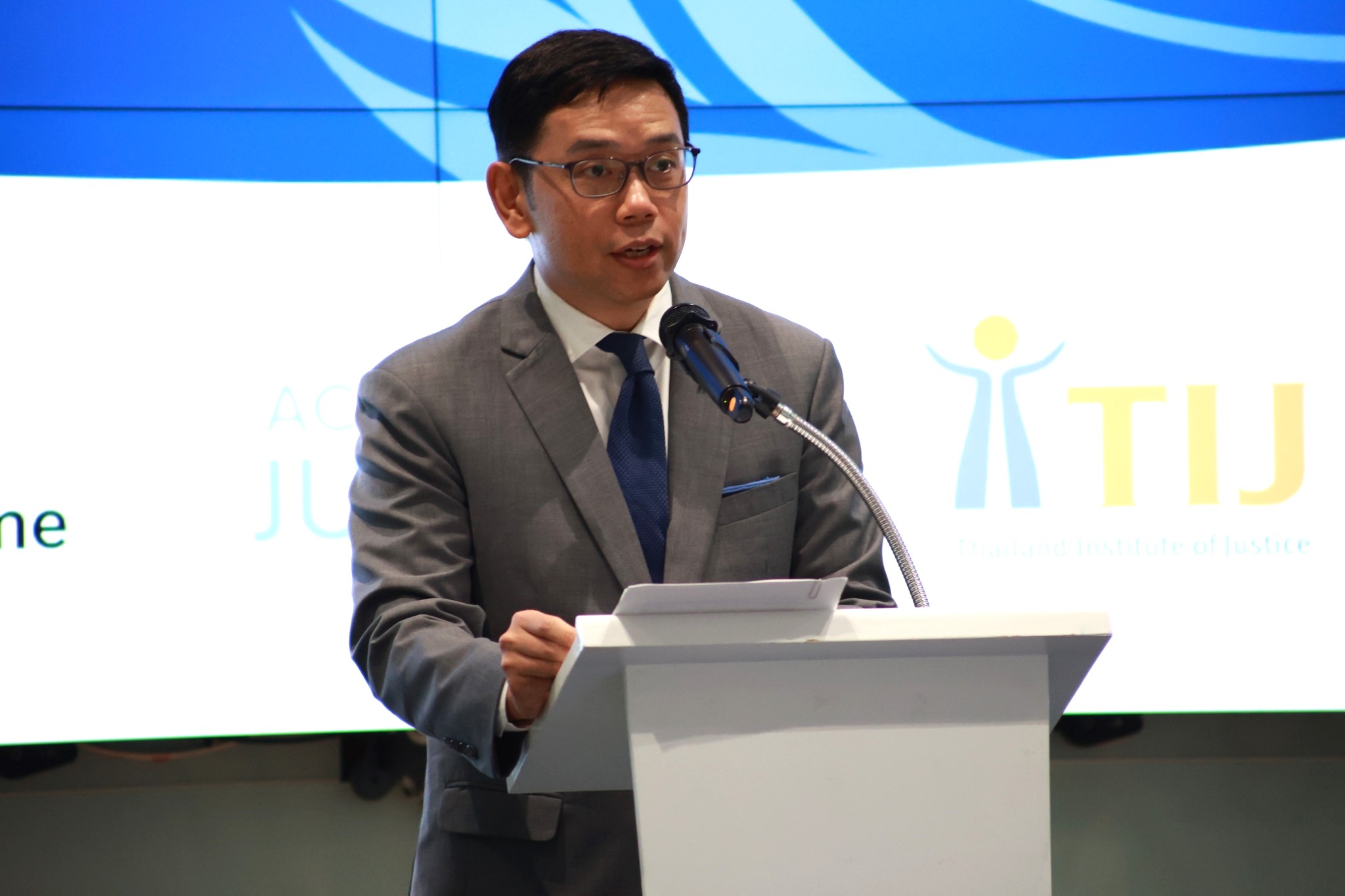
Dr. Phiset continued on the situation of legal aid services that in Thailand, legal aid services are presently standardized but flawed due to limited capacity and unclear mandates. For example, fragmented legal aid delivery means that a potential litigant can approach the legal system through many entry points. These may include a government agency, a bar association, civil society organizations, or even a university law clinic. There is no single, coordinated “home” for these services. As a result, the system becomes so confusing that those who most need legal aid often do not even know where to begin.
“This issue reinforces the idea of “people-centred” justice, an idea that TIJ has consistently promoted, which is that access to justice must begin with people, not the institutions. To build a more inclusive system, we need to move from supply-driven to needs-driven justice.”
In detail, this means starting from evidence—understanding which groups remain unserved, what forms of assistance they trust, and how digital tools can reduce time, cost, and stigma. The idea has been steadily gaining acceptance regionally and globally because it is more transformative and impactful than traditional institutions. It can also help reverse the rule-of-law recession through data-driven justice approaches and innovation. These tools enable policymakers to measure what matters most to the people.
“This is truly a great opportunity so that we can learn from one another’s innovations, whether it’s digital legal aid platforms, paralegal networks, or integrated service delivery models. And to jointly define regional benchmarks for accessible, affordable, and accountable justice.” He concluded.
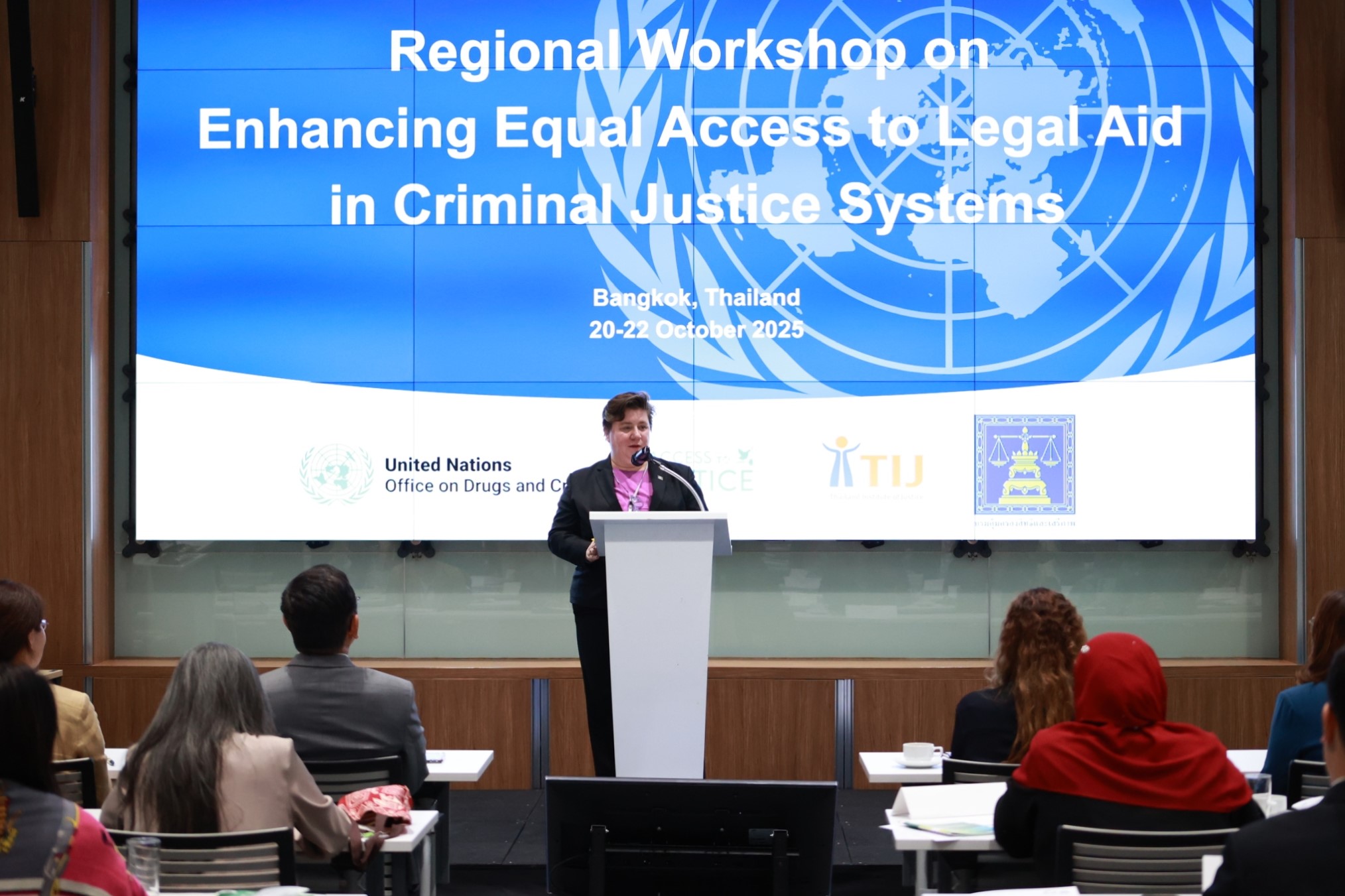
Ms. Anna Giudice, Team Leader, Access to Justice, Crime Prevention and Criminal Justice Section, UNODC also delivered that
“Equal access to legal aid is not only the right thing to do, but it is also the smart thing to do. It is a fundamental human right that promotes social justice and economic development. By providing legal support to all who need it, we can prevent legal problems from escalating, address systemic inequalities, and promote greater equality before the law.”
She added that the conference aims “to develop a set of recommendations and outcomes that will outline our joint priorities to improve equal access to legal aid and guide UNODC’s future technical assistance in this area.”
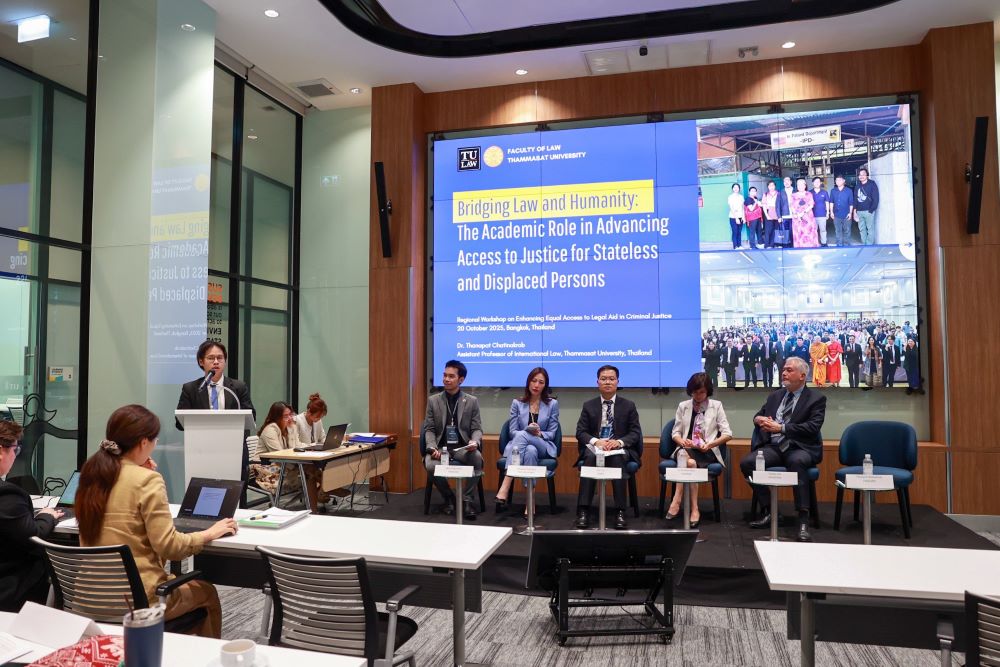
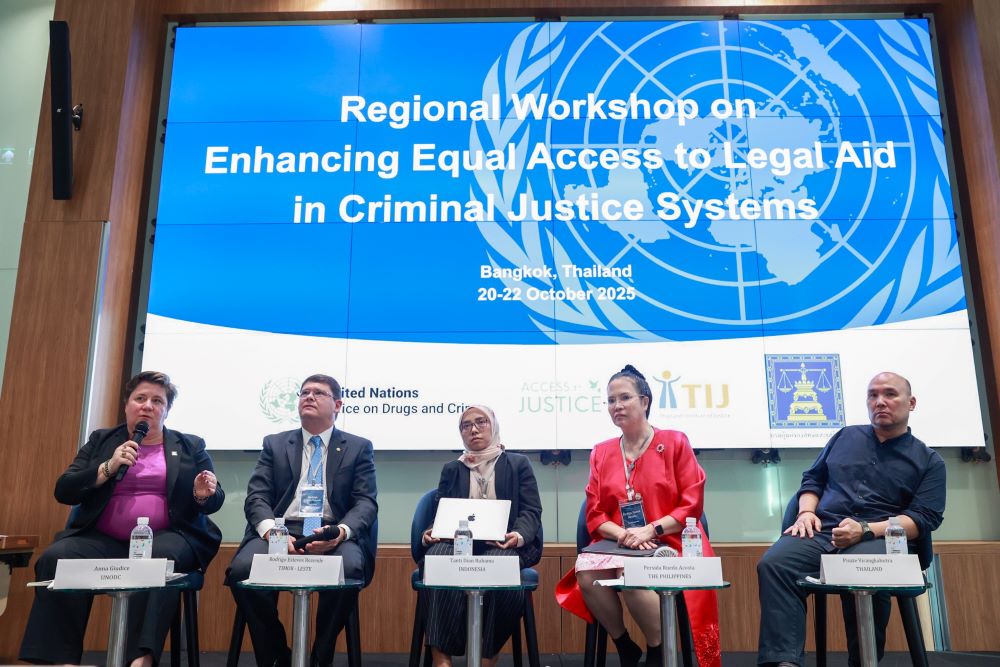
The Regional Workshop on Enhancing Equal Access to Legal Aid in Criminal Justice Systems aims to promote effective, inclusive, and cross-sector ecosystems; build a shared understanding of challenges and opportunities; exchange national experiences and practices from across the region; and jointly develop key recommendations and forward-looking ideas for future cooperation.
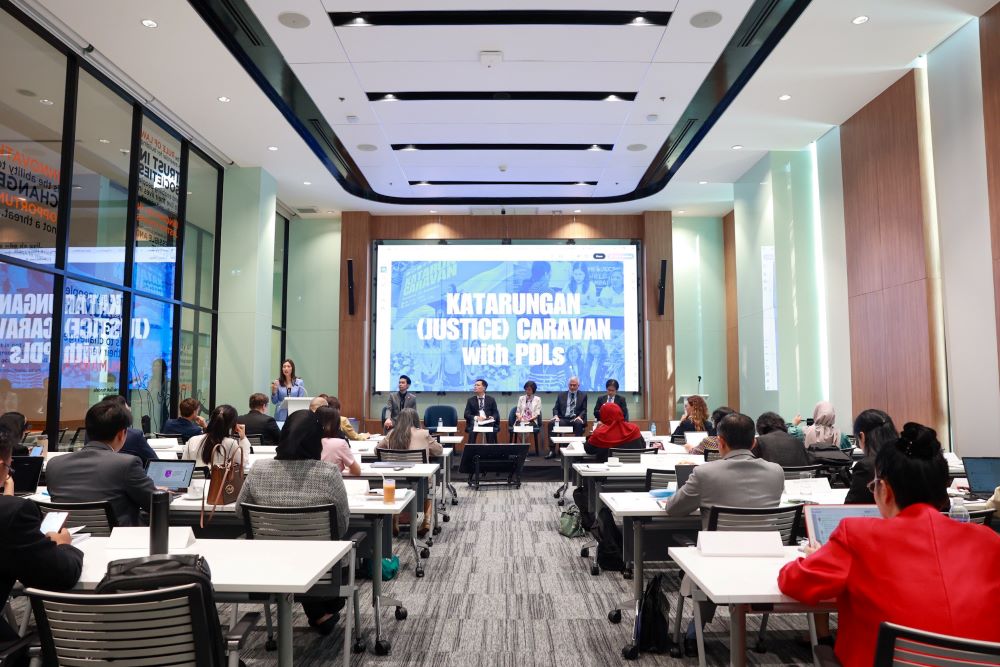
Attendees include representatives from government institutions, bar associations, NGOs, and legal aid practitioners from 10 ASEAN member countries, excluding Brunei. International experts from Argentina, Brazil, and China also participated.
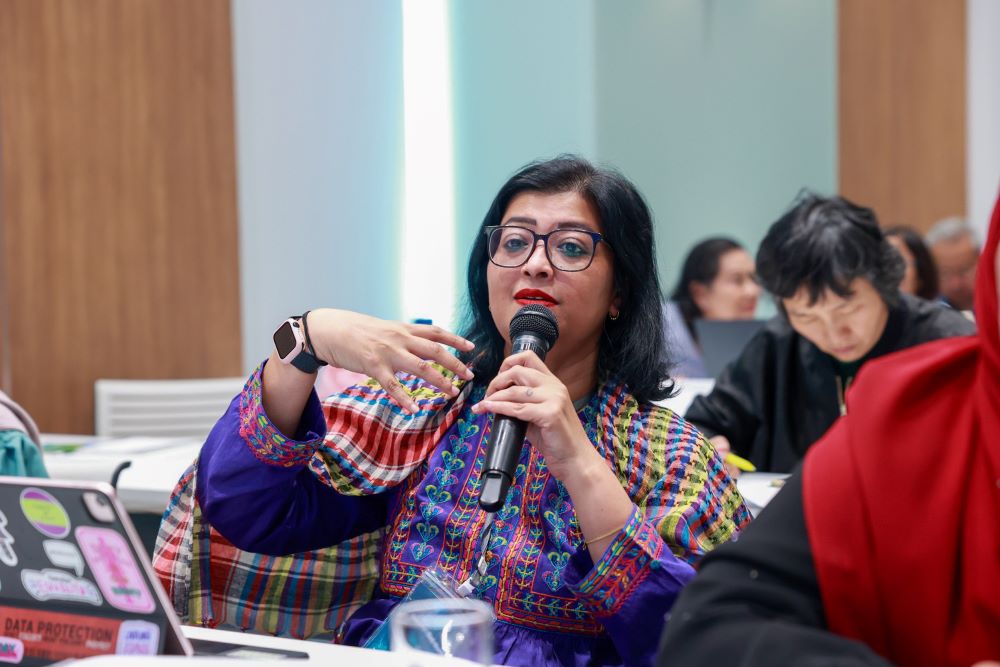
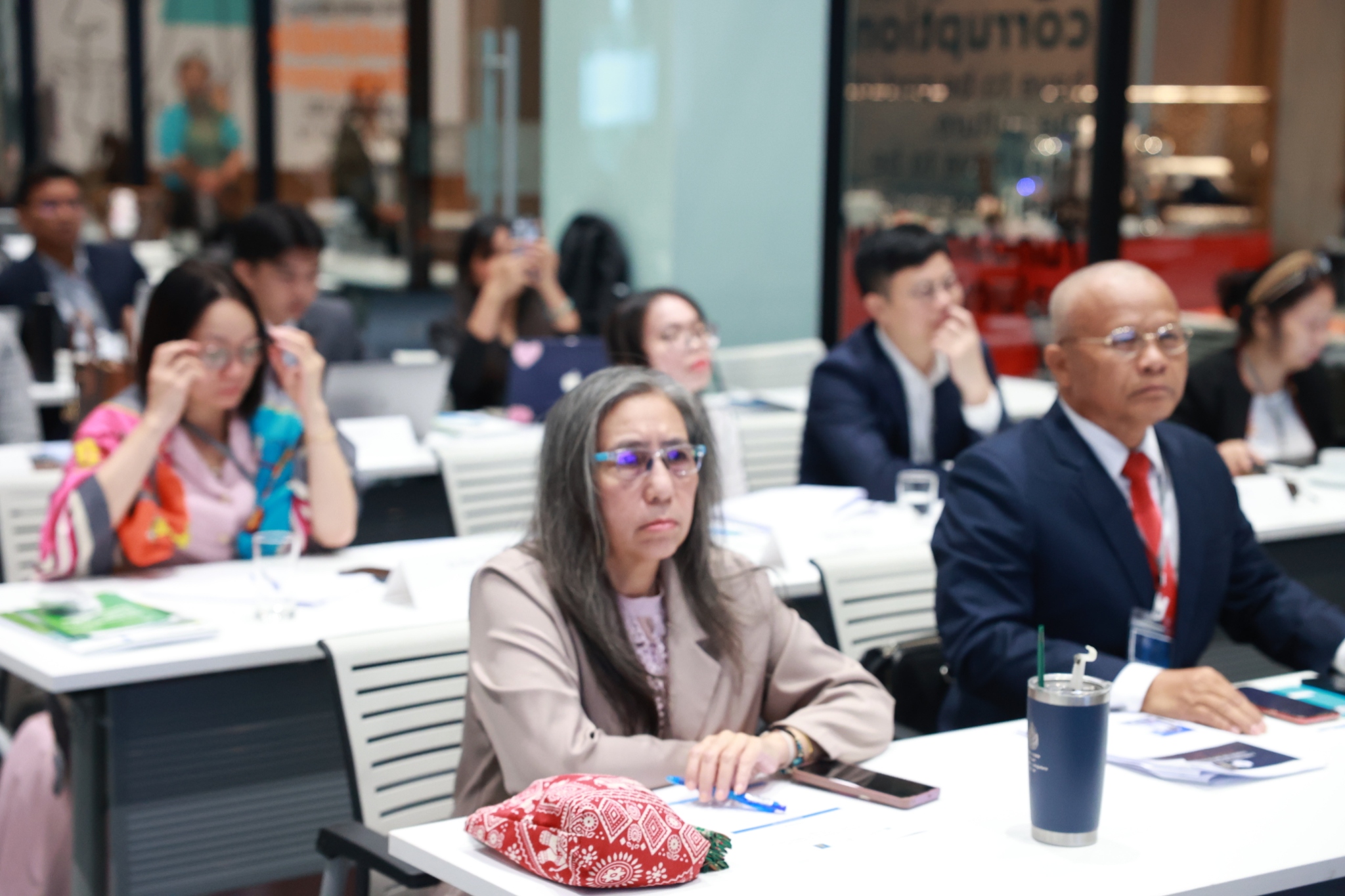
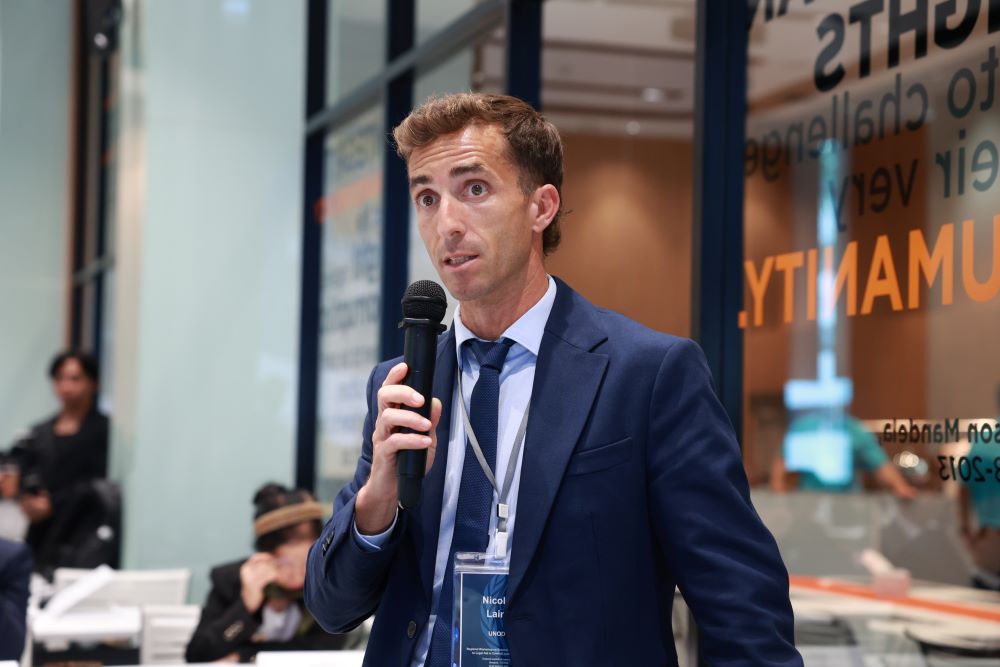
We hope that this three-day workshop equips participants with knowledge, strengthens partnerships, and demonstrates our strong commitment to fair justice and inclusive policy for all.
